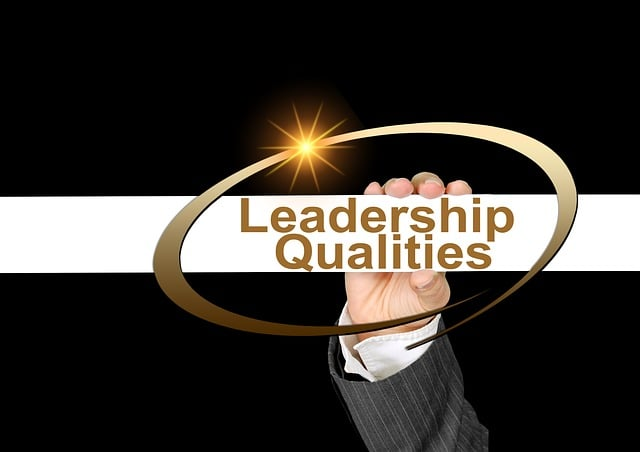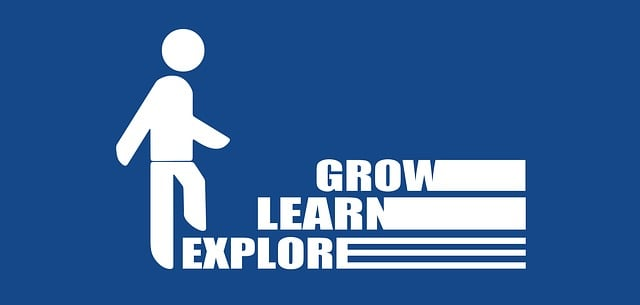Building a great real estate team in 2023 requires a fresh approach and a keen understanding of the ever-evolving landscape. In this guide on how to build a real estate team, we’ll share eight simple steps to help you achieve success by evaluating your readiness to lead, developing a solid business plan, choosing an effective team structure, implementing essential systems and technology, hiring the right team members, fostering a positive team culture, setting clear goals and expectations, and monitoring performance and providing feedback. Let’s dive into the exciting world of real estate team building!
Short Summary
Assess your readiness to be a team leader, including leadership qualities and transaction volume.
Develop a comprehensive business plan with financial projections and create an effective team structure.
Invest in essential systems & technology, hire the right people, foster positive culture and set clear goals for success.
Assess Your Readiness to be a Team Leader

Before embarking on the journey of building a real estate team, it’s essential to assess your readiness to be a team leader. This involves evaluating your leadership qualities, transaction volume, and reasons for starting a team. Taking the time to honestly assess your capabilities and motivations will ensure that you have a strong foundation for success in the real estate industry.
Remember, great real estate teams begin with great team leaders! A skilled real estate agent is essential to the success of the team. In the world of real estate, successful real estate teams can make all the difference in providing exceptional service to clients.
Leadership Qualities

To be a successful team leader, you need to possess a unique set of leadership qualities. Some key qualities include:
Strong communication skills
Effective decision-making abilities
The ability to motivate and inspire your team
Efficient task delegation
Understanding and practicing the Platinum Rule – treating others as they wish to be treated.
These qualities are crucial to effectively manage your team and navigate the challenges of the real estate market.
Embodying these qualities will set the stage for a thriving real estate career.
Transaction Volume
When considering whether you’re ready to be a team leader, it’s important to examine your transaction volume. A general benchmark is to reach around 40 transactions annually to justify starting a team. As an individual agent, you can manage up to 50-60 transactions, but beyond that, a team becomes necessary to efficiently handle the workload.
Assessing your transaction volume will help you determine if it’s the right time to build a team and expand your real estate business. Team leaders have a record of success.
Reasons for Starting a Team
Reflect on your reasons for wanting to start a real estate team. Are you aiming for increased revenue, a better work-life balance, or the desire to mentor and develop others? Evaluating your motivations will help you determine if starting a team aligns with your long-term goals and vision.
Remember, a successful real estate team begins with a clear purpose and a strong real estate team leader.
Develop a Solid Business Plan and Budget

Once you’ve assessed your readiness to lead, it’s time to develop a solid business plan and budget for your real estate team. This includes a clear business strategy that outlines your team’s structure, goals, and growth plans.
Additionally, financial projections should be included to estimate expenses, revenue, and potential profit. A well-structured plan, along with a thoughtful budget, ensures that your team operates efficiently and sets the stage for a successful real estate business.
Business Strategy
A comprehensive business strategy is crucial for the success of your real estate team. It should outline:
Your team’s structure
Goals and growth plans
Lead generation strategies
Marketing strategies
Roles and responsibilities of each team member
This strategy will provide a clear roadmap to achieve your objectives and ensure the success of your real estate team.
An effective business strategy will not only guide your team toward success, but also help you adapt and evolve in the ever-changing real estate market.
Financial Projections

Creating financial projections is essential for estimating expenses, revenue, and potential profit for your real estate team. By examining past data, assuming future trends, and utilizing financial models, you can develop an accurate estimate of your team’s financial performance.
Financial projections, such as:
Cash flow projections
Income statements
Balance sheets
Break-even analysis
Offer valuable insights into the financial health of your business and inform strategic decision-making.
Choose an Effective Team Structure

Determining the right real estate team structure for your real estate business is crucial for success. The most suitable structure depends on your team’s size and objectives. A partnership-based model encourages collaboration and shared responsibilities among team members. A hierarchical model establishes a clear chain of command and defined roles.
By choosing an effective team structure, you’ll create a strong foundation for your team’s growth and long-term success.
Partnership-Based Model
A partnership-based model fosters a collaborative environment where team members share responsibilities and work together towards common goals. This team model is ideal for smaller teams that value open communication and creative problem-solving.
By adopting a partnership-based model, you’ll encourage a team dynamic that thrives on cooperation and shared success with other agents. This ultimately contributes to a stronger and more cohesive real estate team.
Hierarchical Model
In contrast, a hierarchical model establishes a clear chain of command and defined roles for each team member. This structure is more suitable for larger teams with more complex operations. It ensures that tasks are completed efficiently and communication is streamlined.
By implementing a hierarchical model, you’ll create a well-organized team that operates effectively and consistently works towards achieving your business goals.
Implement Essential Systems and Technology

To streamline your real estate team’s operations and ensure maximum efficiency, it’s crucial to implement essential systems and technology. CRM and lead management tools, as well as marketing and sales automation software, are fundamental to optimizing your team’s workflow and enhancing client relationships.
By investing in the right systems and technology, you’ll set your team up for success in the competitive real estate industry.
CRM and Lead Management
Utilizing CRM (Customer Relationship Management) and lead management tools is vital for efficiently managing client relationships and tracking leads. These tools provide a centralized platform for managing contacts, monitoring interactions, and tracking leads throughout the sales process.
By implementing CRM and lead management systems, you’ll ensure that no lead falls through the cracks and enable your team to focus on what they do best – closing deals and providing exceptional service to clients.
Marketing and Sales Automation
Marketing and sales automation software can significantly optimize your team’s marketing efforts and sales processes. These tools automate repetitive tasks, such as email marketing, lead generation, and campaign management, freeing up your team to focus on more strategic initiatives.
Additionally, marketing and sales automation can help your team generate more leads, convert leads into customers more effectively, and ultimately boost sales. By implementing these systems, you’ll equip your team with the tools they need to excel in the real estate market.
Hire the Right Team Members

Hiring the right team members is crucial for the success of your real estate team. As your business grows, you’ll need to fill crucial roles such as administrative assistants, buyer’s agents, and inside sales agents. Each team member should possess the necessary skills, experience, and attitude to contribute to the entire team itself’s success.
By carefully selecting and nurturing your team members, you’ll create a strong and cohesive group of professionals equipped to thrive in the real estate industry.
Administrative Assistant
An administrative assistant is an invaluable addition to any real estate team. They manage daily tasks, such as arranging showings, handling correspondence, and maintaining the office space, ensuring that your team operates smoothly and efficiently. When hiring an administrative assistant, look for candidates with strong organizational skills, a helpful attitude, and the ability to multitask.
A competent administrative assistant can make all the difference in the success of your real estate team.
Buyer’s Agent
A buyer’s agent is responsible for:
Managing client relationships
Demonstrating properties
Attending to the buyer’s needs
Submitting offers
Negotiating on behalf of their clients
Collaborating with the listing agent
They play a crucial role in ensuring that no leads are overlooked and that the sales process is managed effectively.
When hiring a buyer’s agent, look for candidates who are energetic, organized, and motivated, with the ability to prioritize their time wisely and follow up on leads promptly.
Inside Sales Agent

An inside sales agent is responsible for generating leads and setting appointments for your team. They play a key role in the lead generation process, ensuring a steady stream of new business for your team. When hiring an inside sales agent, look for candidates who are comfortable communicating via phone, display strong communication skills, and are resilient in the face of rejection.
By hiring an effective inside sales agent, you’ll ensure that your team has a consistent pipeline of potential clients.
Foster a Positive Team Culture

A positive team culture is essential for the success of any real estate team. By utilizing personality assessments and team-building activities, you can create a cohesive and supportive environment where team members feel valued and motivated to excel.
A strong team culture not only leads to increased productivity and better collaboration, but also contributes to the overall happiness and satisfaction of your team members.
Personality Assessments
Personality assessments, such as the DISC assessment or Myers-Briggs Type Indicator (MBTI) are very informative. They can provide valuable insights into your team members’ strengths, weaknesses, and preferred communication styles. By understanding your team members on a deeper level, you can optimize team dynamics, enhance collaboration, and ensure that each individual is working in a role that aligns with their natural strengths and preferences.
Implementing personality assessments into your team-building process will ultimately contribute to a more harmonious and productive work environment.
Team Building Activities

Engaging in team-building activities is an effective way to strengthen relationships and encourage collaboration among team members. Some examples of team-building activities include:
Team lunches
Outings
Sports
Team-building exercises
These activities can help break down barriers, improve communication, and foster a sense of camaraderie within your team.
By regularly participating in team-building activities, you’ll create a positive and supportive atmosphere where your team members feel valued and motivated to excel in their roles.
Set Clear Goals and Expectations

Establishing clear goals and expectations for your real estate team members is important. It is crucial for maintaining focus and ensuring that everyone is working toward the same objectives. By setting both team-wide and individual goals, you’ll provide direction and purpose for your team members and encourage them to continuously improve and develop in their roles.
Remember, a goal-driven team is a successful team.
Team Goals
Team goals should align with your overall business strategy and vision, ensuring that everyone is working toward the same objectives. Examples of team goals may include increasing sales, enhancing customer service, and improving efficiency.
By establishing clear team goals, you’ll provide a roadmap for success and create a sense of shared purpose among your team members.
Individual Goals

Encouraging individual goals for each team member is essential for promoting personal growth and development. By setting specific, measurable, attainable, relevant, and time-bound (SMART) goals for each team member, you’ll provide direction and motivation for continuous improvement.
Supporting your team members in their personal growth not only contributes to the overall success of your real estate team, but also fosters a culture of learning and development.
Monitor Performance and Provide Feedback

Regularly monitoring your team’s performance and providing feedback is crucial for ensuring continuous improvement and success. By tracking performance metrics and conducting periodic reviews, you’ll be able to identify areas for improvement and provide support and guidance to your team members.
Remember, a successful real estate team is one that is constantly learning, growing, and adapting to the ever-changing market. Real estate agents play a crucial role in the success of a real estate team, as they are the ones who interact with clients and close deals.
Performance Metrics
Tracking performance metrics is essential for evaluating your team’s progress and identifying areas for improvement. By analyzing metrics such as sales volume, customer satisfaction, and team productivity, you’ll gain valuable insights into your team’s performance and be better equipped to make informed decisions about your business.
Regularly monitoring performance metrics will ensure that your team stays on track and continues to excel in their roles.
Reviews and Feedback

Conducting regular reviews and providing constructive feedback is essential for helping your team members grow and excel in their roles. By offering support, guidance, and direction, you’ll empower your team members to continuously improve and develop in their roles.
Remember, a successful real estate team is one that is constantly learning, growing, and adapting to the ever-changing market.
Summary
In conclusion, building a successful real estate team in 2023 requires a fresh approach that encompasses assessing your readiness to lead, developing a solid business plan and budget, choosing an effective team structure, implementing essential systems and technology, hiring the right team members, fostering a positive team culture, setting clear goals and expectations, and monitoring performance and providing feedback. By following these eight simple steps, you’ll be well on your way to creating a thriving real estate team that is equipped to succeed in the competitive real estate market.
Frequently Asked Questions

How does a team structure work in real estate?
Real estate teams typically consist of an operations section, which includes admin staff and transaction coordinators, and a sales section, which includes agents and showing assistants.
Together they work to achieve their goals of selling homes and providing excellent client service.
How do you succeed on a real estate team?
To succeed on a real estate team, it is important to lead by example, set goals, use resources efficiently, provide structure and support, effectively utilize meetings, and remain flexible and approachable.
By leading by example, you can show your team members the importance of hard work and dedication. Setting goals will help you stay focused and motivated. Utilizing resources efficiently will help you maximize your team’s potential. Providing structure and support will help ensure that everyone is on the same page.
How do you build a successful real estate firm?
To build a successful real estate firm, focus on developing resilience, becoming an expert among real estate professionals in your local area, creating a referral network, and providing excellent customer service. Leverage technologies like CRM and email marketing, as well as time management techniques to build a successful business plan, website, and marketing strategy. (For more on email marketing: https://www.quickcommissionadvance.com/blog/email-marketing-in-real-estate-a-comprehensive-guide-for-2023/ )
Additionally, develop good communication skills, nurture relationships with past clients, and prioritize customer satisfaction.
How does a real estate agent stand out?
A real estate agent can stand out by being a great communicator, building an online presence and a community presence, and using professional photography to showcase listings.
What are the key leadership qualities required to lead a successful real estate team?
Leading a successful real estate team requires strong communication and decision-making abilities, the ability to motivate and inspire others, and understanding of the Platinum Rule.

Leave a Reply